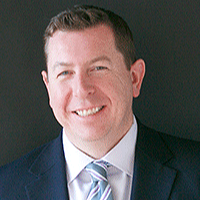 By Eric Demers, CEO, Madaket Health
By Eric Demers, CEO, Madaket Health
X: @MadaketHealth
In 2022, 20% of adults said they or their family received an unexpected medical bill. The No Surprises Act (NSA), which went into effect last year, is better late than never. A bipartisan effort to protect patients from unexpected healthcare expenses, the NSA minimizes surprise billing and makes the cost of care more transparent by granting patients access to preliminary good faith estimates of care costs. It’s a vital development for the industry, but while patients can enjoy the benefits, health plans and providers are left scrambling to meet the law’s strict new requirements.
What the NSA Demands from Health Plans
Under the NSA, health plans are required to establish a process that guarantees their provider directories are accurate. The new NSA verification requirements for health plans are outlined below:
- Establish a verification process and removal process for unverified providers
- Verify and update provider information every 90 days
- Update payer databases within 48 hours of receiving updated provider information.
- Respond to all requests regarding a provider’s network status within 24 hours.
Insurers that fail to comply with the above provisions can face fines of up to $100 per day for each individual affected by a violation. The federal government can fine you up to $100 per individual impacted by those errors while also fining providers up to $10,000 for mistakes. And that’s just the fines from the federal government; each state can also establish its own financial penalties.
Few will argue that these requirements are unreasonable. After all, patients deserve the most up-to-date provider info to make informed decisions regarding their health and finances. But for health plans, something as simple as an error in their member directory can now wreak financial havoc on their business. The harsh reality is that health plans have already struggled to keep up with increasing provider updates. Many still rely on archaic tracking methods such as cold calling and data scraping to keep their databases current.
A Single Source of Truth
For organizations tracking hundreds of thousands of in-network providers, this outdated, siloed approach to data management simply won’t cut it. The potential for human error stemming from these tactics is too great, and the NSA penalties are too severe. Payers now must embrace modern, automated tools to help them quickly get their data in order. Doing so ensures NSA compliance and allows them to streamline and reduce spending on other administrative tasks, saving millions annually.
Data delivery and maintenance are among the most prominent administrative headaches payers face, making an automated solution a crucial piece of adhering to federal regulations like the NSA. Providers and payers need a sophisticated infrastructure that facilitates the seamless exchange of critical information and eliminates inefficient information silos.
The NSA could be the catalyst to bring much-needed progress to healthcare. Patients get more tailored and precise cost information while providers and health plans finally initiate a technology-backed, streamlined patient experience. These entities can easily maintain compliance amidst ever-shifting regulations while providing a better patient experience. A single automated provider data exchange is the key to simplifying transactions between payers and providers so they can stay compliant with the No Surprises Act through real-time provider directory updates.
